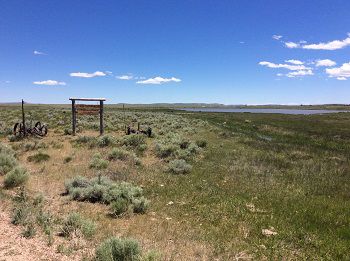Three Tribal Nations in the Great Plains are partnering with the U.S. Department of Agriculture to help conserve, maintain and improve grassland productivity, reduce soil erosion, and enhance wildlife habitat through the Conservation Reserve Enhancement Program.
The Cheyenne River, Oglala and Rosebud Sioux Tribes are entering into CREP agreements with USDA’s Farm Service Agency to enroll eligible grassland, pastureland, and other agricultural lands within the boundaries of their reservations in this conservation program.
These are the first-ever CREP agreements in partnership with Tribal Nations—reflecting priorities and goals of USDA to broaden the scope and reach of its voluntary, incentive-based conservation programs to engage underserved communities. Scott Marlow, FSA’s Deputy Administrator for Farm Programs, met with Tribal leaders at the Western Dakota Technical College in Rapid City to highlight the CREP agreements and to discuss the benefits of conservation. Attendees included Tribal chairmen from the Cheyenne River, Oglala, and Rosebud tribes and representatives from the Intertribal Agriculture Council.
Through these Tribal CREPs, farmers, ranchers, and agricultural producers voluntarily enter into contracts with the federal government for 10 to15 years, agreeing to maintain an existing vegetative cover of permanent grasses and legumes (Conservation Practice 88), while retaining the right to conduct common grazing practices and operations related to the production of forage and seeding. In return, FSA provides participants with rental payments and cost-share assistance for establishing permanent fencing and livestock watering facilities needed to support livestock grazing.

